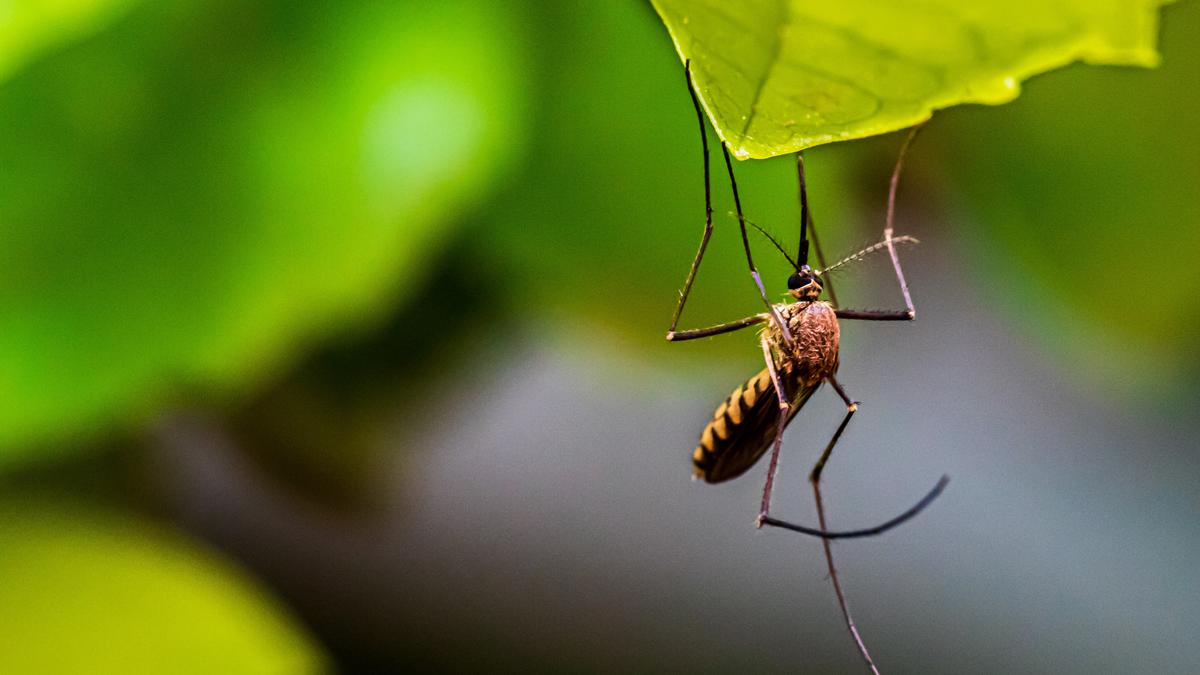
Buzzing breakthrough: genetic engineering gives mosquito control an upgrade Premium
The Hindu
Mosquitoes have plagued humans for centuries, transmitting deadly diseases. To combat this, we now have access to the whole genome sequences of multiple mosquito species, allowing us to genetically manipulate them. Gene-drive technology is one such approach, which has been used in outdoor trials in India, Brazil, and Panama, showing promising reduction in mosquito populations. However, there are concerns about unintended consequences, which require extensive data collection and multistakeholder discussions.
Throughout human history, mosquitoes have constantly buzzed in the background of human existence, irritating us with their incessant bites and occasionally wreaking havoc by transmitting deadly diseases. The earliest known mosquitoes from the fossil record date back at least 70 million years, and evidence of mosquito-borne diseases like malaria dates back to Egyptian mummies from 2000 BC.
Apart from malaria, which claims the lives of over half a million people every year and infects close to 250 million, mosquitoes serve as vectors for various other diseases. These include dengue, Zika, lymphatic filariasis, and yellow fever. Understandably, our relationship with these tiny, blood-sucking insects has been far from cordial.
The rapid urbanisation of the world’s populations, especially in many large and economically developing countries like India, has led to annual surges in mosquito-borne illnesses like dengue. Together with climate change and its cascading consequences, mosquito-borne diseases have expanded into new territories. A notable example is the indigenous cases of dengue in France in recent years.
It is not surprising then that mosquito control has taken centrestage today and the battle continues unrelenting with an array of tools – from mosquito nets to insecticides and the use of symbionts like Wolbachia. But with insecticide resistance in mosquitoes rising to alarming proportions, it has become imperative that newer approaches to mosquito control gain prominence, even despite the availability of a first-generation malaria vaccine that officials in different countries are currently implementing in a pilot in endemic regions.
In the last two decades, our ability to read or sequence the genomes of organisms, and edit and manipulate these genomes, has given us new tools in this fight. Thanks to advancements in next-generation sequencing techniques, we now have access to the whole genome sequences of multiple mosquito species. Notably, researchers from the University of California, the Tata Institute of Genetics and Society, and the Institute of Bioinformatics and Applied Biotechnology have helped prepare high-quality reference genomes for Anopheles stephensi, a major malaria-vector mosquito. (The two latter institutes are based in Bengaluru.)
The availability of these high-quality sequences, coupled with our capacity to genetically manipulate them, offers unprecedented opportunities.
The fundamental idea behind genetic manipulation of mosquitoes is to systematically control their populations by interfering with their reproduction. Scientists worldwide have developed various genetic modification approaches. A major one in this endeavour is gene-drive technology, whose end result is for mosquitoes to selectively inherit some genes, rather than the inheritance to follow the rules of Mendelian genetics.





















 Run 3 Space | Play Space Running Game
Run 3 Space | Play Space Running Game Traffic Jam 3D | Online Racing Game
Traffic Jam 3D | Online Racing Game Duck Hunt | Play Old Classic Game
Duck Hunt | Play Old Classic Game











